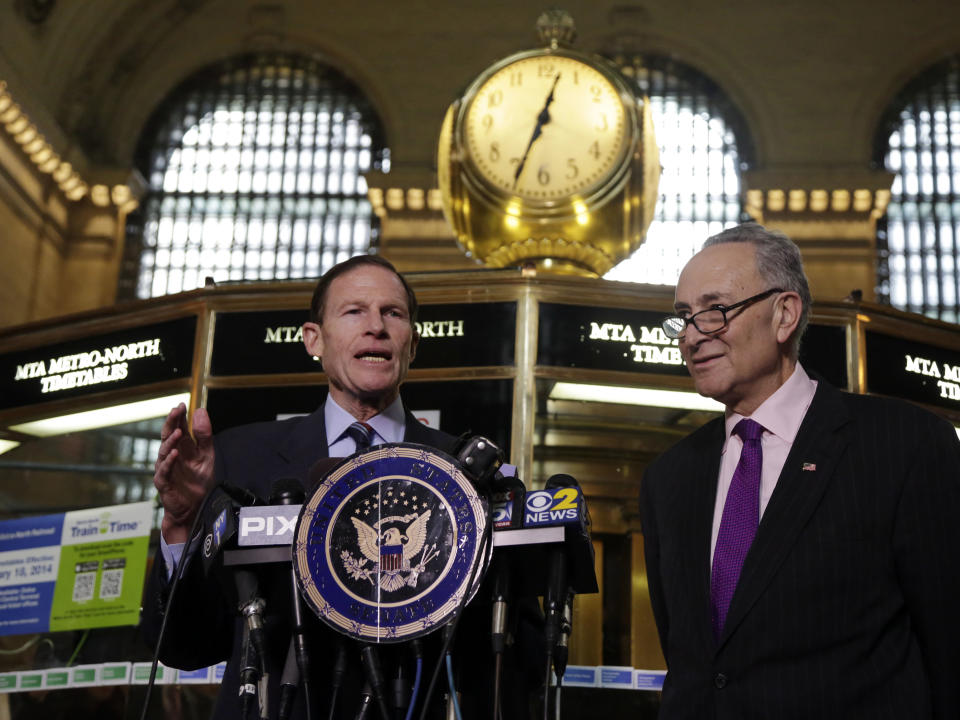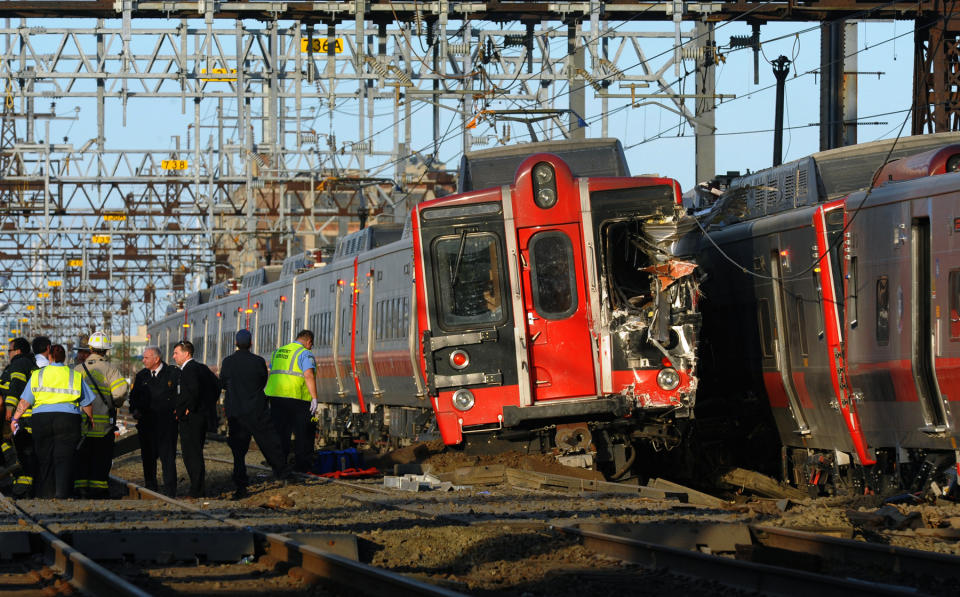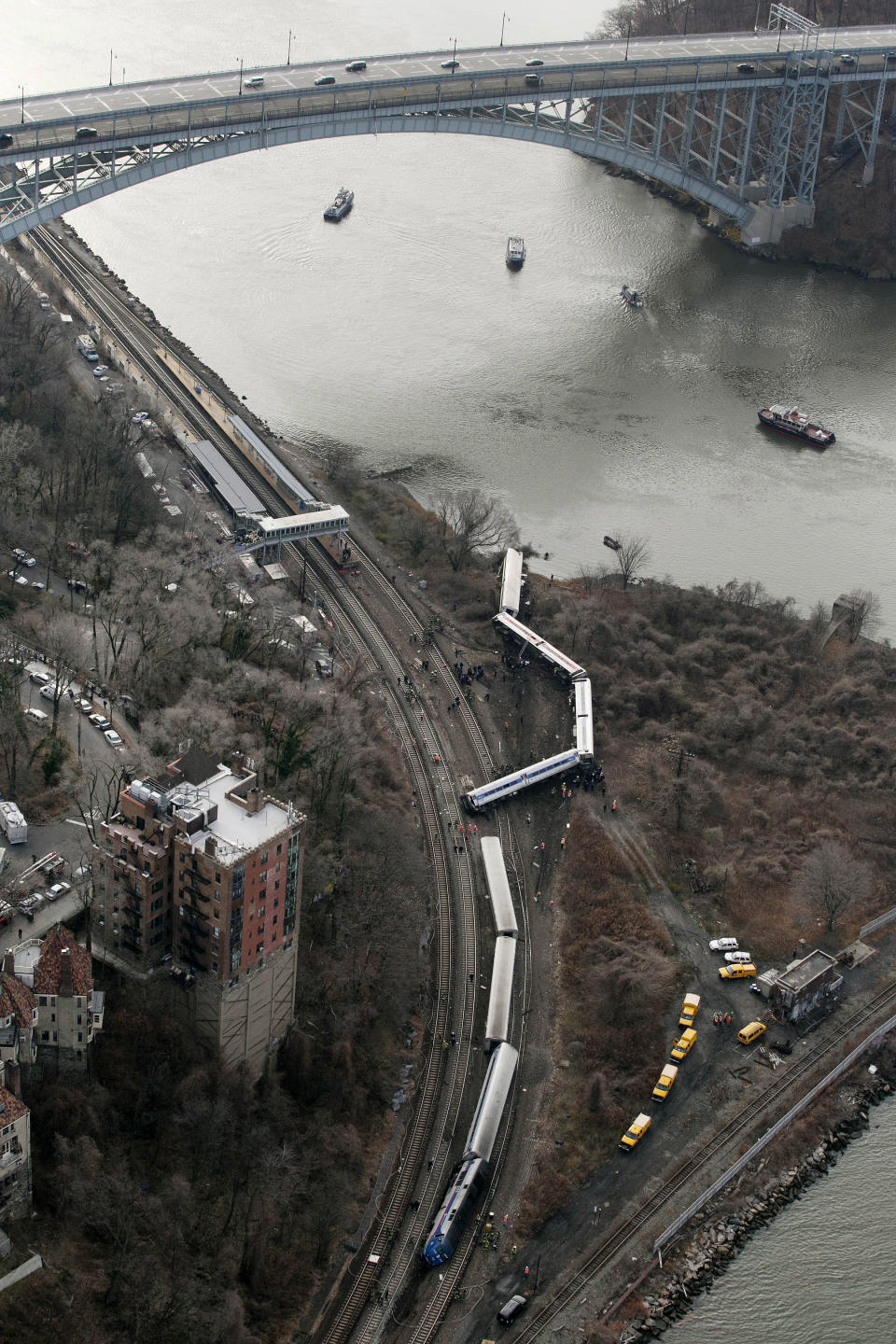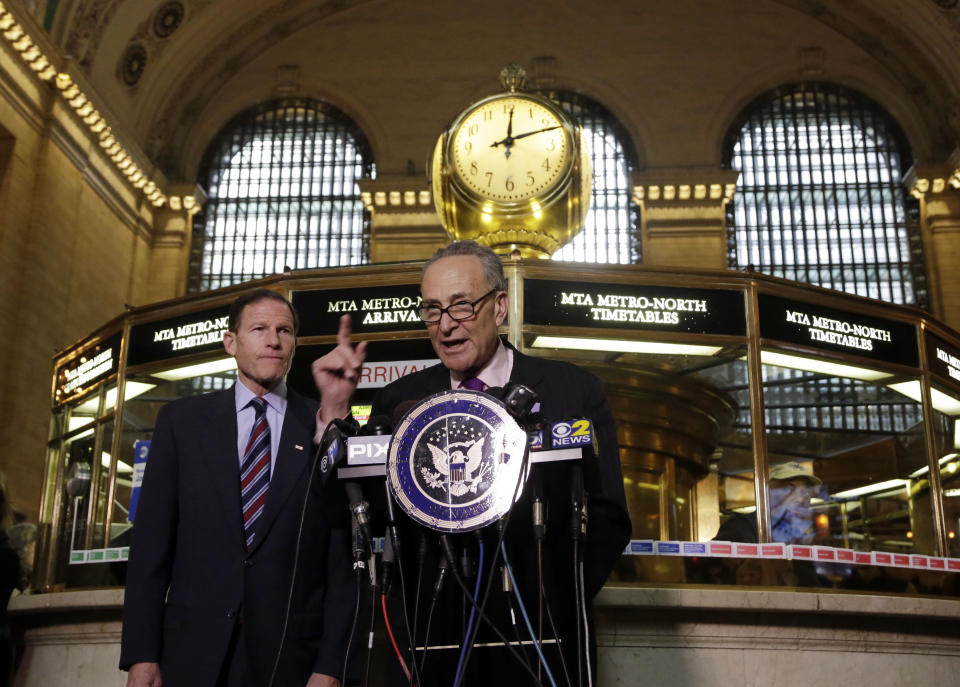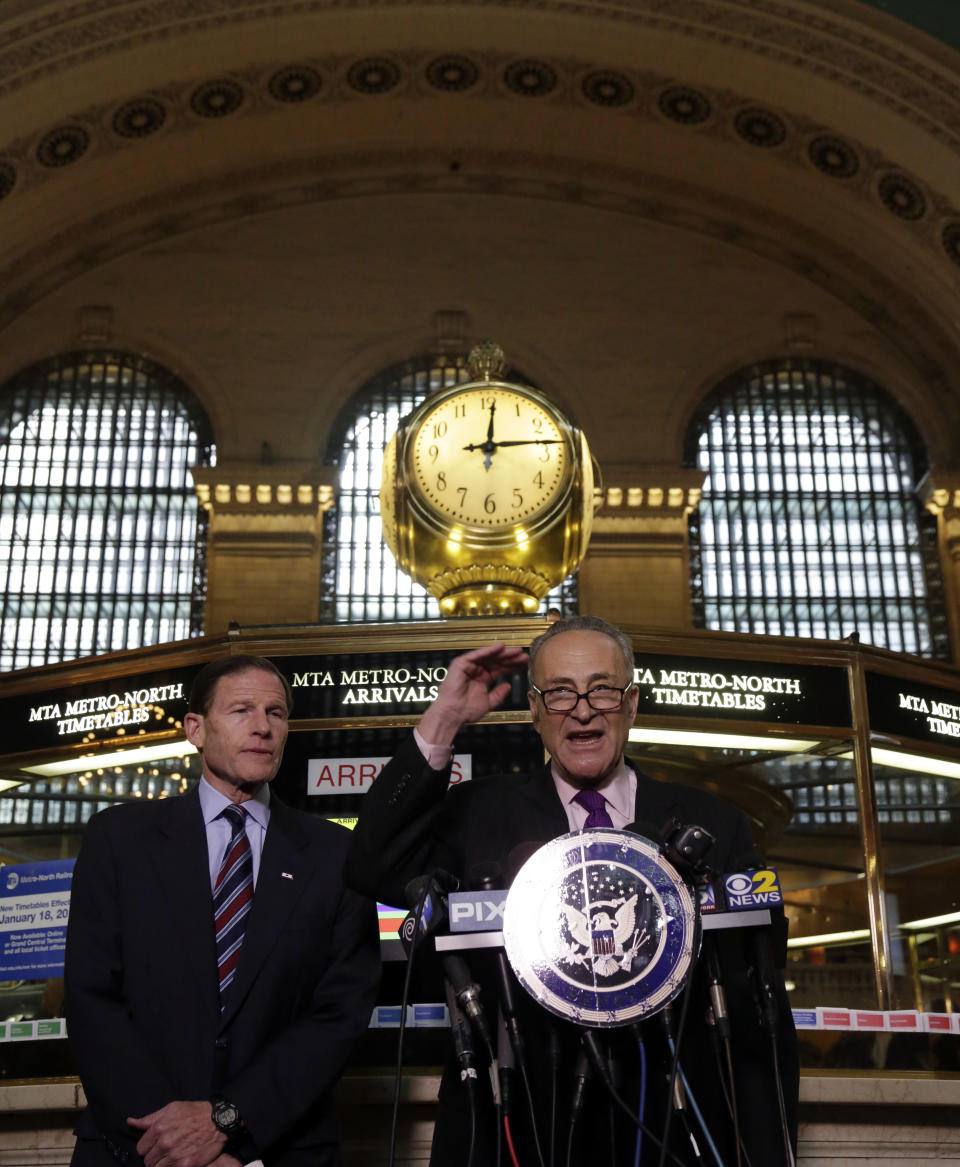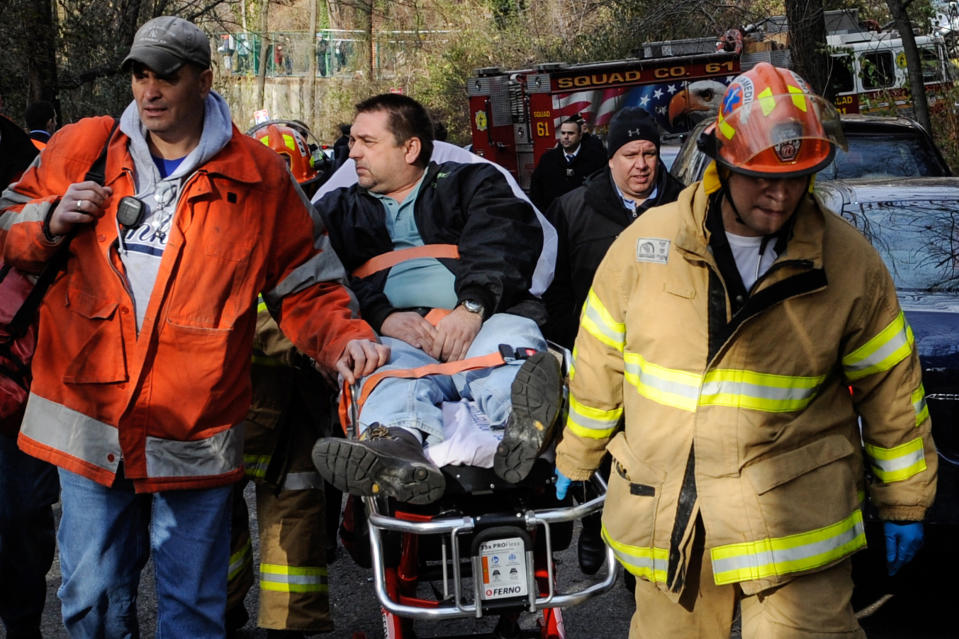Review blasts NY railroad after fatal derailment
NEW YORK (AP) — Metro-North, the nation's second-largest commuter railroad, allowed safety to erode while pushing to keep its trains on time, resulting in a lax culture of inadequate inspections, poor training and inappropriate cellphone use, according to a stinging federal report prompted by a deadly derailment.
The Federal Railroad Administration, in a report to Congress issued Friday, said Metro-North Railroad's emphasis on sticking to its schedule "led to a deficient safety culture that has manifested itself in increased risk and reduced safety."
It said that "no single department or office, including the Safety Department, proactively advocates for safety" at the railroad, which carried more than 83.4 million riders between New York City and its suburbs last year.
FRA Administrator Joseph Szabo said on a conference call that Metro-North "failed to set aside sufficient time" for track inspection and maintenance and resisted testing its crews on its main lines, "the most important place to do it," for fear of delaying passenger trains.
The agency ordered the railroad to immediately "prioritize safety above all else" and spread that idea.
The review was prompted by a Dec. 1 derailment in the Bronx that killed four passengers and injured about 70 others. But it also cited three other accidents in 2013: a derailment in Bridgeport, Conn., that injured more than 50 people; an accident in West Haven, Conn., that killed a Metro-North worker; and a freight train derailment in June in New York City.
It did not include another worker's death on the tracks Monday in Manhattan.
Metro-North President Joseph Giulietti, who took office after the Bronx derailment, said at a Grand Central Terminal news conference that the report was "deeply troubling and it raises real concerns."
"Safety was not the top priority," he said. "It must be, and it will be. ... Every problem I have seen here can be fixed and will be fixed." He said "aggressive actions" were already underway, including a program that would allow workers to make confidential calls raising safety issues.
Metro-North also has modified signals and posted speed limits. The train that derailed in the Bronx was going 82 mph as it entered a curve with a 30 mph speed limit, the National Transportation Safety Board has found.
The NTSB's full report on the derailment is several months away.
On the conference call, Sens. Charles Schumer, D-N.Y., and Richard Blumenthal, D-Conn., called for more personnel changes. Giulietti said he expects to announce shortly a new chief of transportation and a new person in charge of engineering.
Gov. Andrew Cuomo said, "We've changed leadership at Metro-North. We're doing everything we can as quickly as we can to make it safer. ... I understand the importance of on-time service, people want that too, but more important is safety."
Metro-North riders said the derailment had made them more concerned about safety.
"People are definitely more afraid," said Brenda Gonzalez, an office manager from Mount Vernon. She said measures should be taken "if there's a real danger to commuters."
David Bishop, of Scarsdale, said the findings in Friday's report would have surprised him "until the accident they had last year."
Politicians including Rep. Nita Lowey, D-N.Y., called for more funding for Metro-North and other railroads to install positive train control, a technology that Szabo said probably would have prevented the Bronx derailment.
The report found that Metro-North training needs improvement in at least seven areas, ranging from track safety to engineer certification to dispatch.
It found that the railroad's rules addressing workers' use of cellphones are confusing and that the use of phones "appeared to be commonplace and accepted" by some employees. It suggested phone usage could be a distraction and asserted that employees used phones inappropriately.
Szabo said there was no finding that train crews were using cellphones and there was no evidence the deadly derailment or the other accidents had anything to do with phones.
The report said there was "excessive" overtime on the railroad and 100 vacancies in the maintenance-of-way force.
The FRA ordered Metro-North to submit plans of action within 60 days.
Szabo said he plans to meet with commuter lines in other cities and use the Metro-North report as a tool "to up their game."
Asked about the Long Island Rail Road, which is the nation's largest and like Metro-North is run by the Metropolitan Transportation Authority, Szabo said there were no signs there "of the depth of challenges" found at Metro-North.
However, Schumer said he plans to ask the MTA to analyze the LIRR in light of the Metro-North findings.
___
Associated Press videojournalist Joseph B. Frederick contributed to this report.
